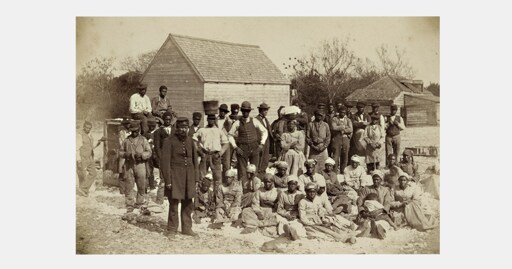When the Trump administration asks the Supreme Court on Thursday to allow it to deny birthright citizenship to the children of undocumented immigrants and visa holders, its legal theory will rest on a reinterpretation of a critical phrase of the Constitution. But when you plug their preferred meaning back into the historical context in which the Constitution’s Citizenship Clause was enacted, the results are nonsensical. In other words, the crux of the government’s argument simply makes no sense.
The first sentence of the 14th Amendment, passed by Congress a year after the Civil War, is the Citizenship Clause: “All persons born or naturalized in the United States, and subject to the jurisdiction thereof, are citizens of the United States.” When President Donald Trump signed an executive order on the first day of his administration that would deny birthright citizenship to the children of undocumented immigrants and visa holders, he premised it on the idea that undocumented immigrants and visa holders are not “subject to the jurisdiction” of the United States. This is the phrase the government is asking the courts to reinterpret into a fictional absurdity.



I admit that I’m not sure how to interpret this in a way that includes freed slaves, people born in the Confederacy during the Civil War, but not everyone else born on US territory, but the implication of having two separate clauses is still that a person may be born in the United States but not subject to the jurisdiction thereof. I think that the Trump administration’s arguments seem like a stretch, but so is asserting that the “subject to the jurisdiction thereof” clause means nothing.
If they were not subject to to the jurisdiction of the United States, how would the United States have the authority to deport them?
Your interpretation of “subject to to the jurisdiction of the United States” is the one that would make this clause meaningless in the context of the amendment. A sovereign government has that sort of authority over everyone in the country, so presumably the amendment is talking about something different or otherwise there would have been no point in explicitly including the clause at all.
Foreign sovereigns, foreign ambassadors, foreign armies, and Native Americans were the only categories of people capable of existing both in the United States and outside of its jurisdiction at the time of the 14th ammendment’s drafting.
https://reason.com/volokh/2020/10/28/the-original-meaning-of-subject-to-the-jurisdiction-of-the-united-states/
Native Americans living in the united states have been found, in certain senses, at certain times, to not be subject to the jurisdiction thereof.
https://en.m.wikipedia.org/w/index.php?title=Federally_recognized_tribe
https://en.m.wikipedia.org/wiki/Indian_country_jurisdiction#History